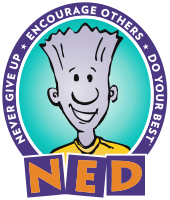The curriculum for Year 5 is outlined in the link below
Year 5 Curriculum information booklet – Autumn 23
The curriculum for Year 5 is outlined in the link below
Year 5 Curriculum information booklet – Autumn 23
Year 4 pupils’ curriculum information is available to download from the link below:
Curriculum for Year 4 Overview
Year 4 Curriculum information for parents – Autumn 2023
Autumn term Maths Workshop for Parents – Year 4
The curriculum for our Year 6 pupils can be downloaded from the link below:
Year 6 Curriculum information booklet for parents- Autumn 2023
It is imperative for children to be in school every day, unless they are unwell. If your child is absent from school or you wish to inform us of an appointment during the school day, you must inform the school by completing the form here Child Sickness Form on the first day of absence before 9:30am.
If you need to take your child out of school for a pre- booked medical appointment, an emergency, a sporting activity or holiday, you need to complete and submit this form Child Appointment/Other Leave of Absence Form Continue reading “School Attendance”
Year 3 Curriculum details are in the links below
Want to know what your Child will be learning in Year 2? Click on the links below to see curriculum details
Year 2 Curriculum information for parents – Autumn 2023
Autumn term Maths Workshop for Parents – Year 2
Find out more about what your Child will be learning in Year 1
Curriculum Overview for Year 1
Year 1 Curriculum booklet for parents – Autumn 2023
Autumn term Maths Workshop for Parents – Year 1
Our Curriculum Intent
Our children will journey through St Teresa’s as kind, courageous and curious citizens, with their passion for learning ignited and their self-belief and well-being nurtured. Every child will have the chance to shine and will leave us prepared for a future of opportunities.
At St Teresa’s Primary School we believe that our curriculum is one that is broad, balanced and ambitious for all. It is exciting, relevant and meaningful and responds to the needs of the individuals within our learning community, enabling them to achieve their best academically as well as flourish socially, emotionally, morally and culturally.
We believe that our curriculum should be viewed in its widest sense – as the entire planned learning experience, including formal learning opportunities as well as events, routines and enrichment activities that take place outside the classroom. Also, permeating our curriculum are the core values of our school ~ Love, Trust, Teamwork and Ambition~, together with the NED values (Never Give Up, Encourage Others, Do Your Best) and the British Values of Individual Liberty, Mutual Respect, Democracy and the Rule of Law.
We have designed our curriculum with the following in mind:
Our Curriculum Implementation:
Our curriculum at St Teresa’s is built around 8 core features:
We have adopted the following learning mantra called NED:

Never give up
Encourage others
Do your best
The Impact of our Curriculum:
As a result of our well planned and implemented curriculum, we would expect the impact to be that:
Children attend St. Teresa’s from countries all around the globe, speaking in the region of 30 different languages among them.
Many of our children who come from families that do not speak English are in fact proficient in two or more other languages. Those who do not speak English regularly at home, work extremely hard and achieve relatively better than the national averages for all children, making outstanding progress.
Here at St Teresa’s, we pride ourselves on being an inclusive school. Continue reading “SEND Support”
School dinners are a popular choice with many children at St Teresa’s. The majority of pupils enjoying a hot, school dinner every day.
Please look for the week beginning date at the side of the menu, as there is a 3 week rotation. You will then be able to see what is available each day, so your child can choose which option they would like.
Universal Infant Free School Meals (UIFSM)
All children in Reception up to the end of Year 2 qualify for the government incentive Universal Infant Free School Meal (UIFSM). This means that all children in these year groups are entitled to have a school meal free of charge.
London Free School Meals (LFSM)
You may be aware that all Primary School pupils in London (except Nursery children) are entitled to a Free School Meal for the academic year 2024.25. So if your child is in Year 3 – 6, you will not have to pay for a meal up to the last day of term in July 2025. We will advise you if this changes for the next academic year.
St Teresa’s offer a number of extra curricular clubs, providing pupils with fun activities, extra skills and development opportunities. Continue reading “Extra Curricular Activities”
.
The Government currently provides the school with pupil premium funding for around 10% of the children in our school.
Proudly powered by WordPress | Theme: Baskerville 2 by Anders Noren.